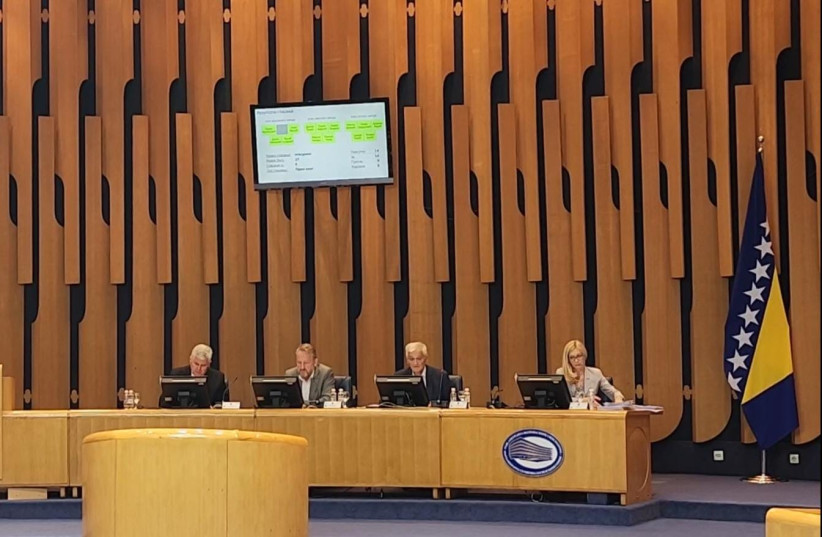Bosnia and Herzegovina's parliament officially adopted the International Holocaust Remembrance Alliance's (IHRA) working definition of antisemitism on Wednesday. Bosnia and Herzegovina is the 38th state to adopt the definition.
This important decision, which took place at the parliamentary level and the president's cabinet, is due to the leadership of Bosnia and Herzegovina's Chairman of Parliament Dargan Čović and the Serb member of the presidency cabinet, Milorad Dodik, following their visit to Israel last month.
The adoption is a joint effort by different governmental and non-governmental entities, including the Combat Antisemitism Movement (CAM) and the Center for Jewish Impact (CJI).
“I am excited to adopt the IHRA working definition of antisemitism, an effort that was made by Mr. Dragan Čović,” said Head of Cabinet of the Chairman of the Presidency of Bosnia and Herzegovina, Tonka Krešić Gagro.
“For me, as a citizen of Bosnia and Herzegovina, with a Jewish legacy in my family, it is a step forward for our people,” she added. “It is a way to show deep respect for the millions who were murdered during the Holocaust, and to those who survived, and to preserve their legacy and remember history.”

Bosnia can lead interfaith relations in Balkan
“We are pleased with Bosnia and Herzegovina’s adoption of the IHRA working definition of antisemitism,” said chairman of the CJI Robert Singer, who is also a senior advisor of the Combat Antisemitism Movement (CAM).
“Bosnia and Herzegovina is now in a position to lead the Balkan states in interfaith relations,” Singer said and called for more countries to adopt the IHRA working definition of antisemitism “as but an initial step in combatting antisemitism across the world.”
According to the European Jewish Congress (EJC), there are about 500 Jews who live in Bosnia and Herzegovina. Most of these Jews (90%) are from a Sephardic background.
According to EJC, there is only one functioning synagogue in Sarajevo, which was rebuilt after World War II and operates as the centre of Bosnian Jewish communal life. In the Sarajevo synagogue, there is a valuable collection of Ladino and other Jewish books, some of which were printed 300 years ago. According to a 1921 census, Ladino was the mother tongue of 10,000 of Sarajevo’s 70,000 inhabitants.
